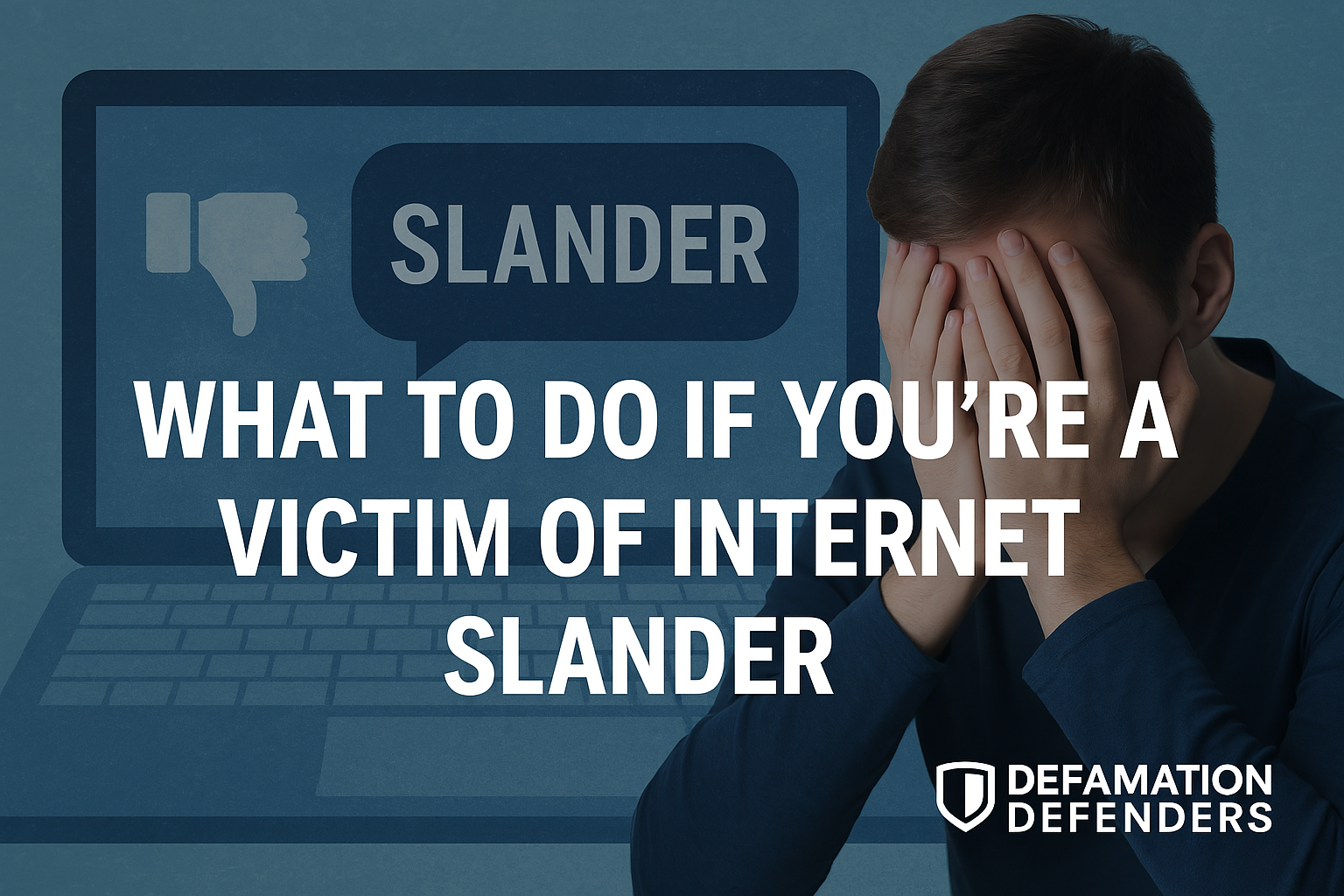Estimated reading time: 3 minutes
Table Of Content
The Rise of Internet Slander and Its Real-World Impact
False and damaging statements on the internet can spread like wildfire. Whether it’s a baseless accusation on a forum, a smear campaign on social media, or a malicious review, internet slander can ruin careers, reputations, and lives.
Common Platforms Where Slander Occurs
- Twitter/X and Facebook posts
- Reddit threads and Quora responses
- Blog articles and comments
- Business review sites like Yelp, Ripoff Report, and Glassdoor
These platforms offer free speech—but that freedom does not include the right to defame.
Step-by-Step Slander Response Guide
Step 1: Document the Slander
Before reacting, capture screenshots and archive the offending content. Include:
- Timestamps
- Usernames/handles
- URLs and web addresses
Use Wayback Machine or tools like PrintFriendly to preserve pages.
Step 2: Evaluate the Defamatory Content
Ask the following:
- Is the statement provably false?
- Was it shared publicly with third parties?
- Did it harm your reputation, employment, or relationships?
If the answer is yes to all three, you may have a strong defamation case.
Step 3: Report the Violation
Each platform has its own reporting process:
Use factual language, not emotional arguments, when requesting removal.
Step 4: Identify the Poster (if anonymous)
Anonymous defamation is common. If necessary, your legal team can subpoena platforms for IP addresses, account logs, and registration info.
Step 5: Send a Cease and Desist Letter
Legal demand letters often result in post removal. A well-drafted cease and desist may:
- Warn of legal action
- Demand content takedown
- Request a formal apology
Step 6: Pursue Legal Action
Consult a defamation attorney for a thorough case review. You may be entitled to compensation for:
- Emotional distress
- Loss of income
- Reputational harm
Legal Standards for Defamation
To file a successful lawsuit, the false statement must:
- Be published to a third party
- Be factually incorrect
- Be damaging to the target’s reputation
- Be made negligently or maliciously
Public figures face a higher bar and must prove “actual malice” per the Supreme Court decision in New York Times Co. v. Sullivan.
Psychological Effects of Online Defamation
Emotional Toll on Victims
- Anxiety and depression
- Fear of being Googled
- Damaged relationships
Professional Consequences
- Loss of career opportunities
- Clients or partners backing out
- Increased scrutiny from employers
Support from mental health professionals is often essential. Reputation injury can have deep psychological roots.
Long-Term Solutions: Reputation Management
Reclaim Your Online Narrative
Once defamatory content spreads, suppressing it with positive content is crucial. Strategies include:
- Publishing blog posts or interviews
- Updating LinkedIn and personal websites
- Securing verified profiles on social media
Monitor Your Online Presence
Set alerts for your name and brand. Tools:
- Google Alerts
- Mention.com
- BrandYourself
Work With a Trusted Partner
Defamation Defenders offers end-to-end solutions to:
- Remove slander from search engines
- Suppress negative links
- Rebuild online credibility
📢 Get a free, confidential case evaluation today: Contact Us
Frequently Asked Questions (FAQ)
Q1: What qualifies as online slander?
Any false, damaging statement published online with negligence or malicious intent.
Q2: Is it illegal to post false claims about someone?
Yes. Defamation laws protect individuals from false public claims that cause harm.
Q3: Can I sue if I don’t know who made the slanderous post?
Yes. Legal subpoenas can uncover the identity of anonymous users.
Q4: How long do I have to sue for online slander?
Statutes vary by state but typically range from 1–2 years from the date of publication.
Q5: What if the post is already going viral?
Immediate legal and PR intervention is key. Defamation Defenders can help mitigate damage fast.
Related Content You Might Like:



